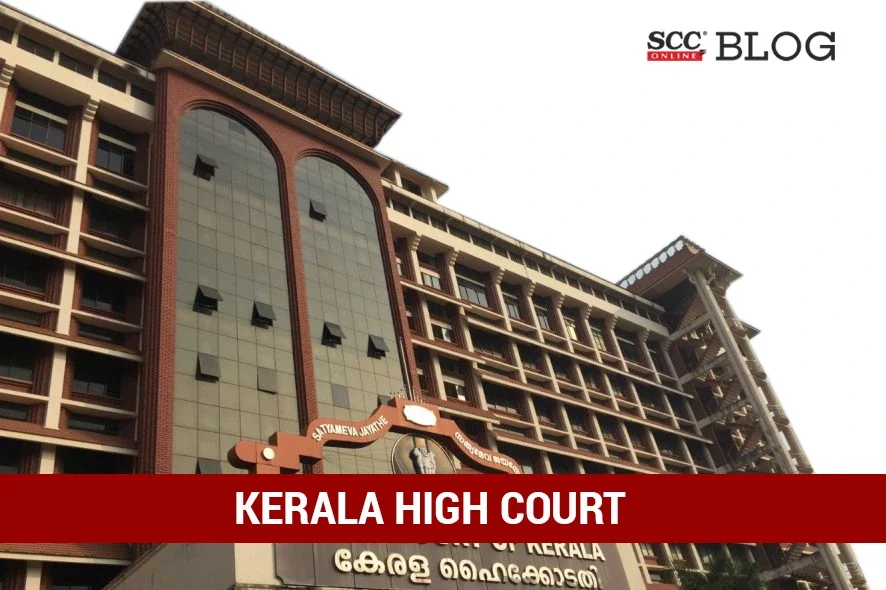Kerala High Court: In a writ petition seeking directions to Kerala State Housing Board (‘KSHB’) authorities to disburse DCRG as per Section 4(3) of Payment of Gratuity Act (1972 Act) as amended in 2010 along with 9% interest for 9 years and 11 months on gratuity amount, while he retired from service on 31-5-2002, Murali Purushothaman, J. clarified that gratuity has to be determined from the date of termination of employment and not the date of disbursement.
The petitioner retired as the Regional Engineer from KSHB on 31-5-2002. The Secretary of KHSB sanctioned pensionary benefits for the petitioner by proceedings dated 20-5-2006 but withheld his Death-cum-Retirement Gratuity (‘DCRG’) amounting to Rs. 2,57,400, and also, the last payment for May 2002 amounting to Rs 21,712 towards his liability on account of audit objections.
The petitioner approached the Court against the same, wherein, the Court directed the Board to disburse the withheld DCRG along with the salary of May 2002 within a month. The Court also left it open for the petitioner to claim interest for the delay in disbursement of DCRG and May 2002 pay. The KSHB through proceedings dated 4-4-2012 accorded sanction for payment of DCRG and May 2002 salary.
The petitioner through the instant petition complained of disbursement of DCRG according to the ‘then existing rule’ when he retired, and that he was entitled to maximum gratuity of Rs 10 lakhs, based on 2010 amendment to Section 4(3) of 1972 Act, which came into effect from 17-5-2010. The petitioner sought directions to the authorities to disburse DCRG in accordance with Section 4(3) of 1972 Act as amended through 2010 amendment along with 9% interest.
The Court said that the petitioner being an employee of KSHB was regulated by the Kerala State Housing Board Employees’ (Pension and other Retirement Benefits) Regulations, 1990 (‘KSR’). The Court scrutinized Regulation 4, Rule 68 regarding pension and other retirement benefits, amount of gratuity payable and pointed out that Section 14 of 1972 Act shall have over-riding effect. The Court expressed that “the employees of KHSB can claim gratuity as per Section 4(3), however, they cannot claim gratuity available under the KSR in such cases.”
The Court also clarified that if an employee claims gratuity under 1972 Act, payment of gratuity is payable at the rate of 15 days’ wages in accordance with Section 4 for each year of service completed, subject to a maximum amount notified by the Central Government. It further said that if the employee claims DCRG as per KSR, gratuity has to be determined under Rule 68 of Part III of KSR. Thus, it was accordingly specified that “The amount of gratuity will be one half of the ‘emoluments’ of an employee for each completed year of qualifying service subject to a maximum of 16½ times the ’emoluments’.”
The Court observed that Section 4 of 1972 Act requires payment of gratuity to an employee on termination of employment, which was 31-5-2002 in the instant case. Thus, the gratuity shall be payable with effect from the same day, i.e., 31-5-2002. The Court suggested that the petitioner has to choose between 1972 Act and KSR for claim of gratuity or DCRG, since he cannot have gratuity under the KSR with the ceiling limit payable under 1972 Act.
The Court further noted that even if the petitioner claims gratuity under 1972 Act, the maximum amount of gratuity payable must be determined according to the date on which gratuity became payable and not when the sanction was accorded for payment of DCRG or on the date of actual disbursement.
The Court did not find any merit in the petitioner’s contention of being entitled to maximum gratuity of Rs 10 lakhs based on 2010 amendment to 1972 Act. However, the Court left it open for the petitioner to claim interest for delay in disbursement of DCRG.
[K. Rajendra Prasad v. State of Kerala, 2023 SCC OnLine Ker 3821, decided on 22-5-2023]
Judgment by: Justice Murali Purushothaman
Advocates who appeared in this case :
For Petitioner: Advocate Rajan Joseph, Advocate Koshy George;
For Respondents: Senior Government Pleader C.N. Prabhakaran, Advocate George Boban, Advocate K. Denny Devassy, Advocate Manoj Ramaswamy, Advocate T.K. Sajeev.






